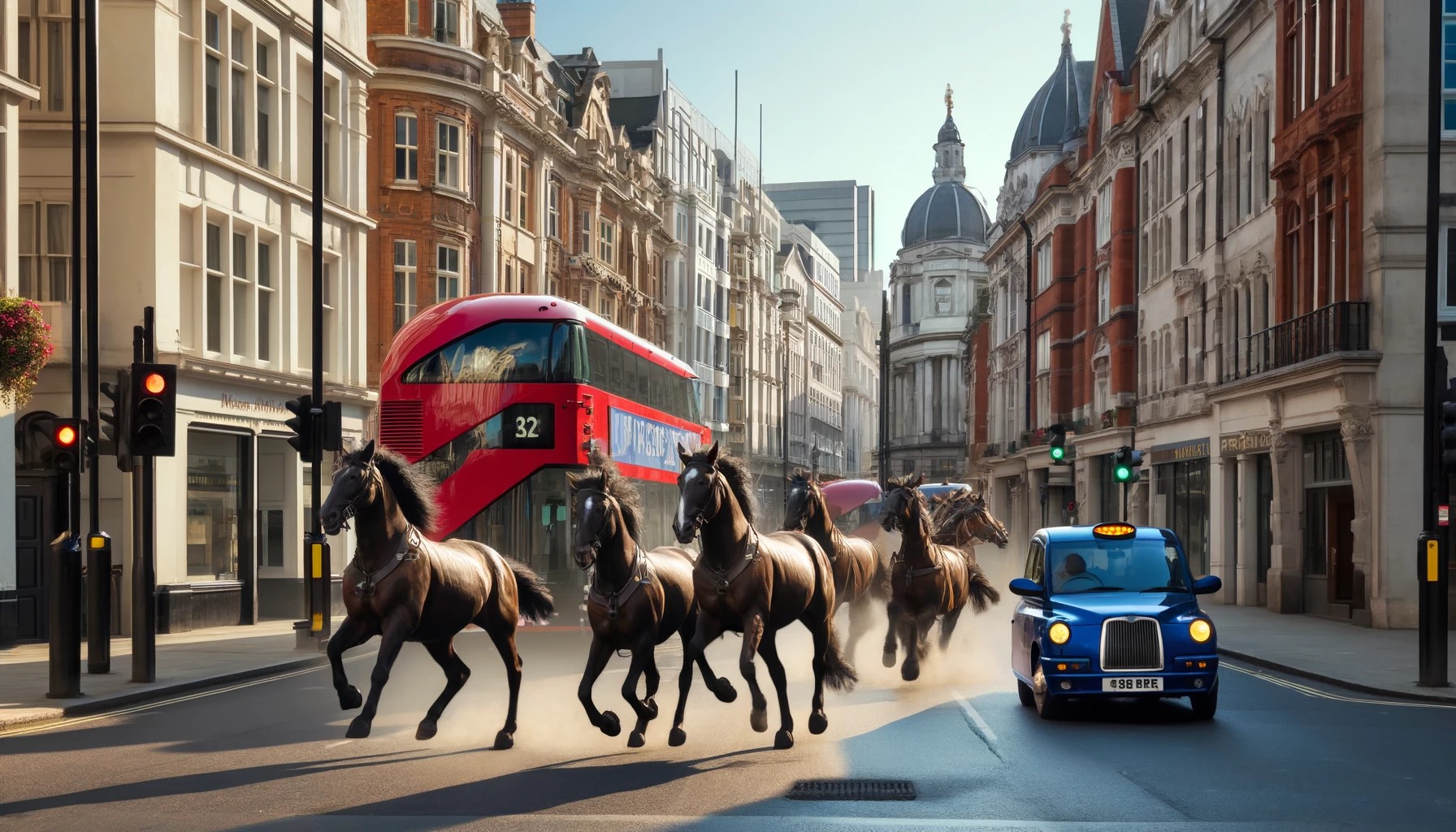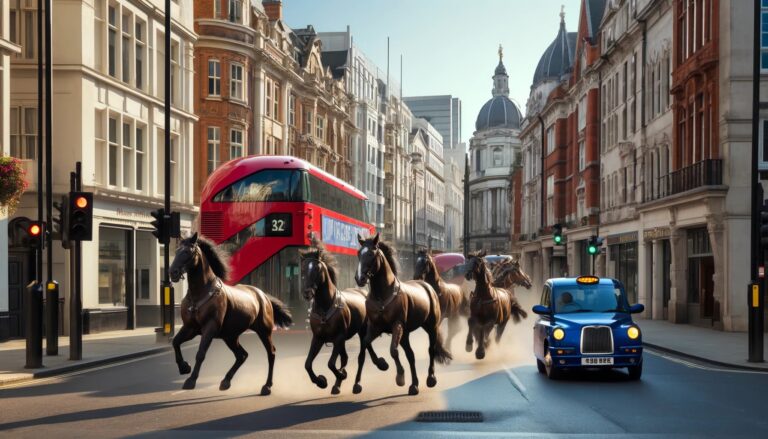Serious arguments, economic and moral, exist to justify the State (the central and sovereign government apparatus). There are also serious objections to these arguments. Interestingly, most people, including most economists, are unaware of both types of phenomena.
I thought about it when reading the funny anecdote reported by the Wall Street Journal about the king’s horses running amok in London this morning (“The king’s horses run wild in London, escaping practice for the monarch’s birthday parade», April 24, 2024):
Several of the king’s horses and some of his men caused chaos in the streets of the capital on Wednesday when members of the Household Cavalry lost their mounts, allowing the animals to gallop through rush-hour traffic, rushing in taxis and double-decker buses while being chased. by the police for several kilometers. …
News that the equine members of the Household Cavalry – who bill themselves as the “trusted guardians of the monarch” – had gone rogue quickly lit up social media.
“How could we have the king’s horses without the state? would not be a serious argument, except perhaps to recognize the importance of traditions. This would certainly not be a decisive argument in favor of monstrous states we have it now. The king’s horses weigh little compared to, say, the powerful arguments against the state developed by Anthony de Jasay, who was also a strong supporter of convention and tradition. On Jasay, see my post this morning as well as my Econlib review of its Against politics.
*******************************
DALL-E has no information on the King’s horses galloping in London this morning. So I asked him to imagine such an event. I’m using one of zir’s answers as the featured image for this post.

DALL-E imagines the king’s horses running wild in London


